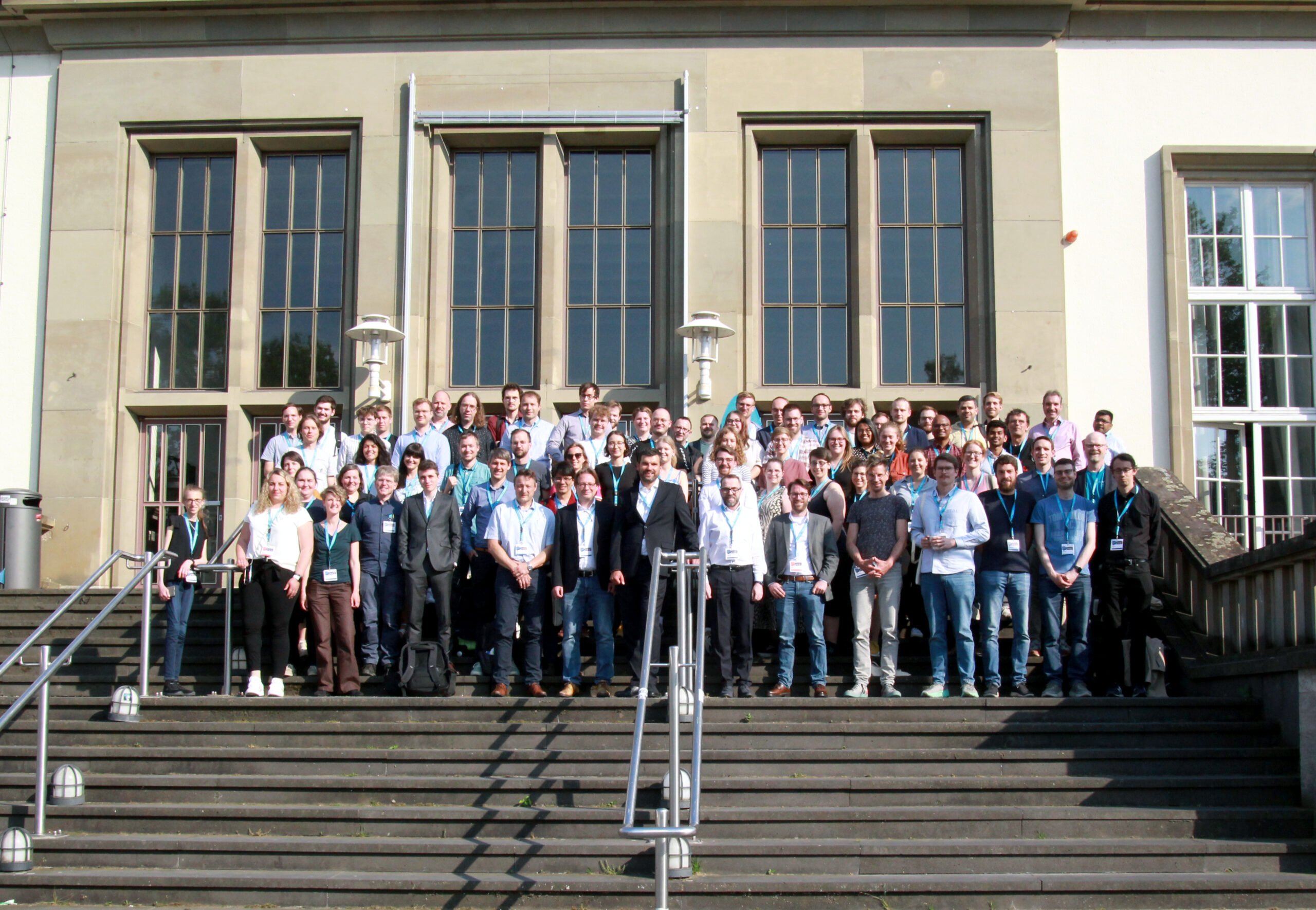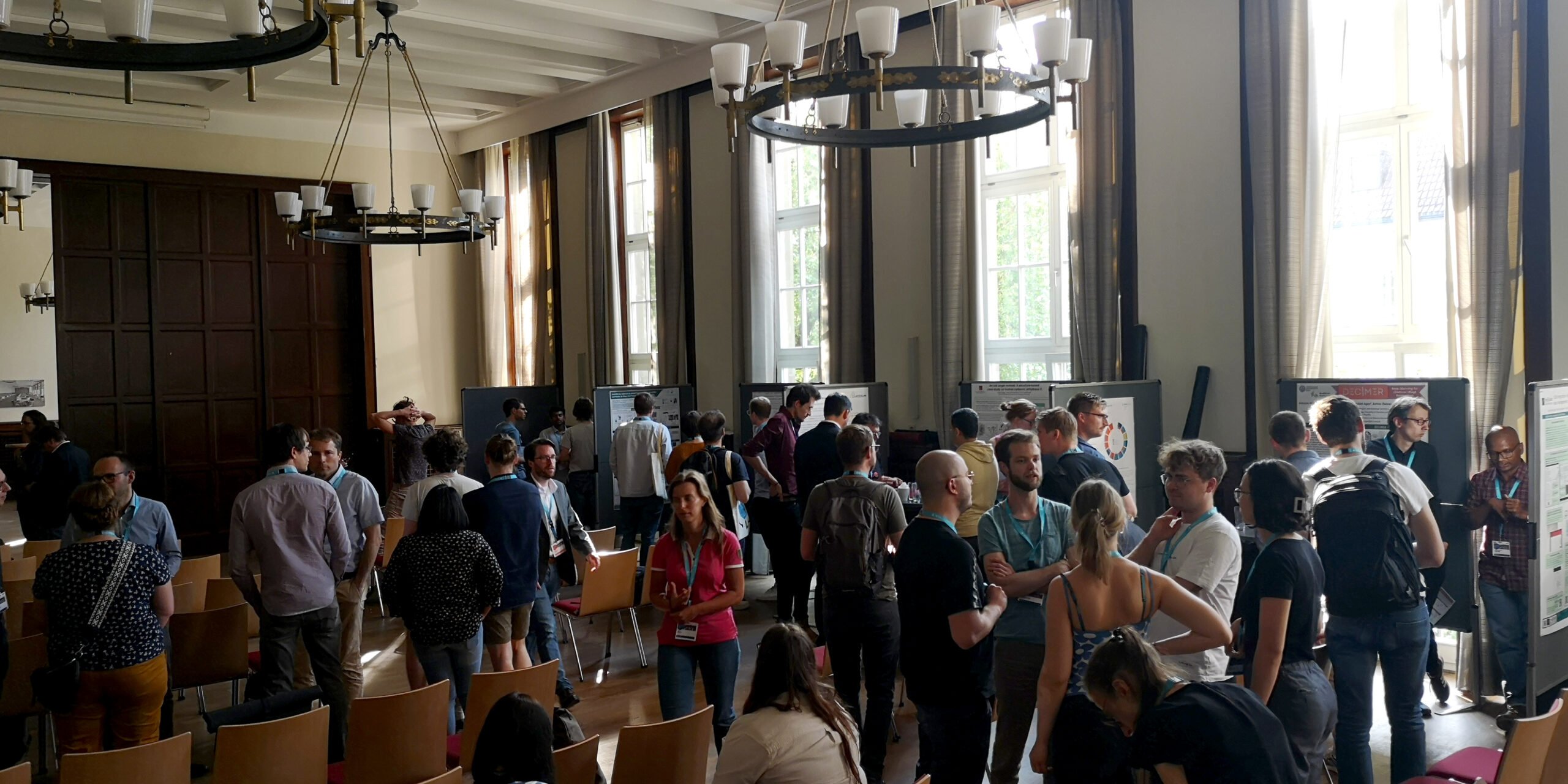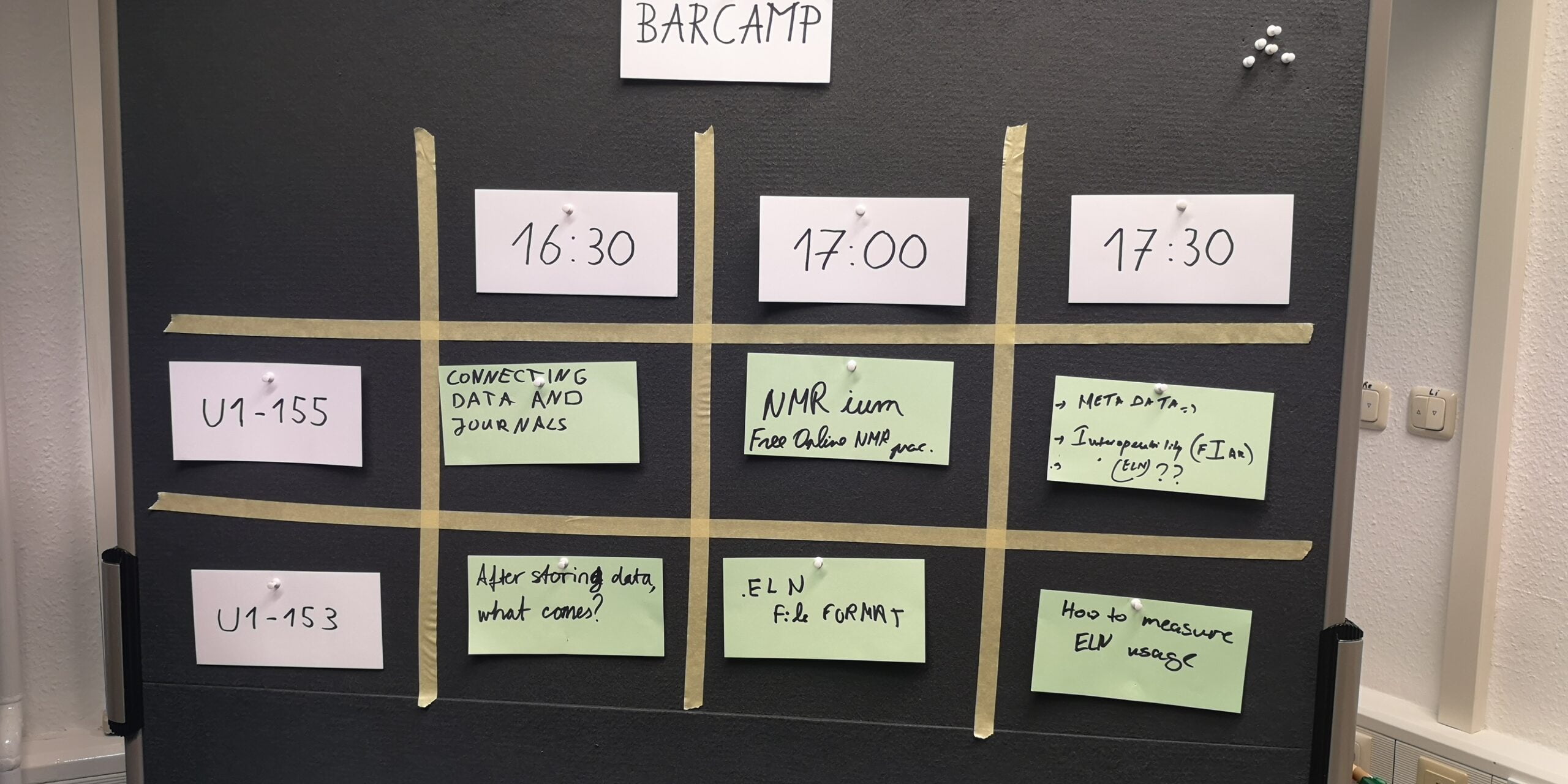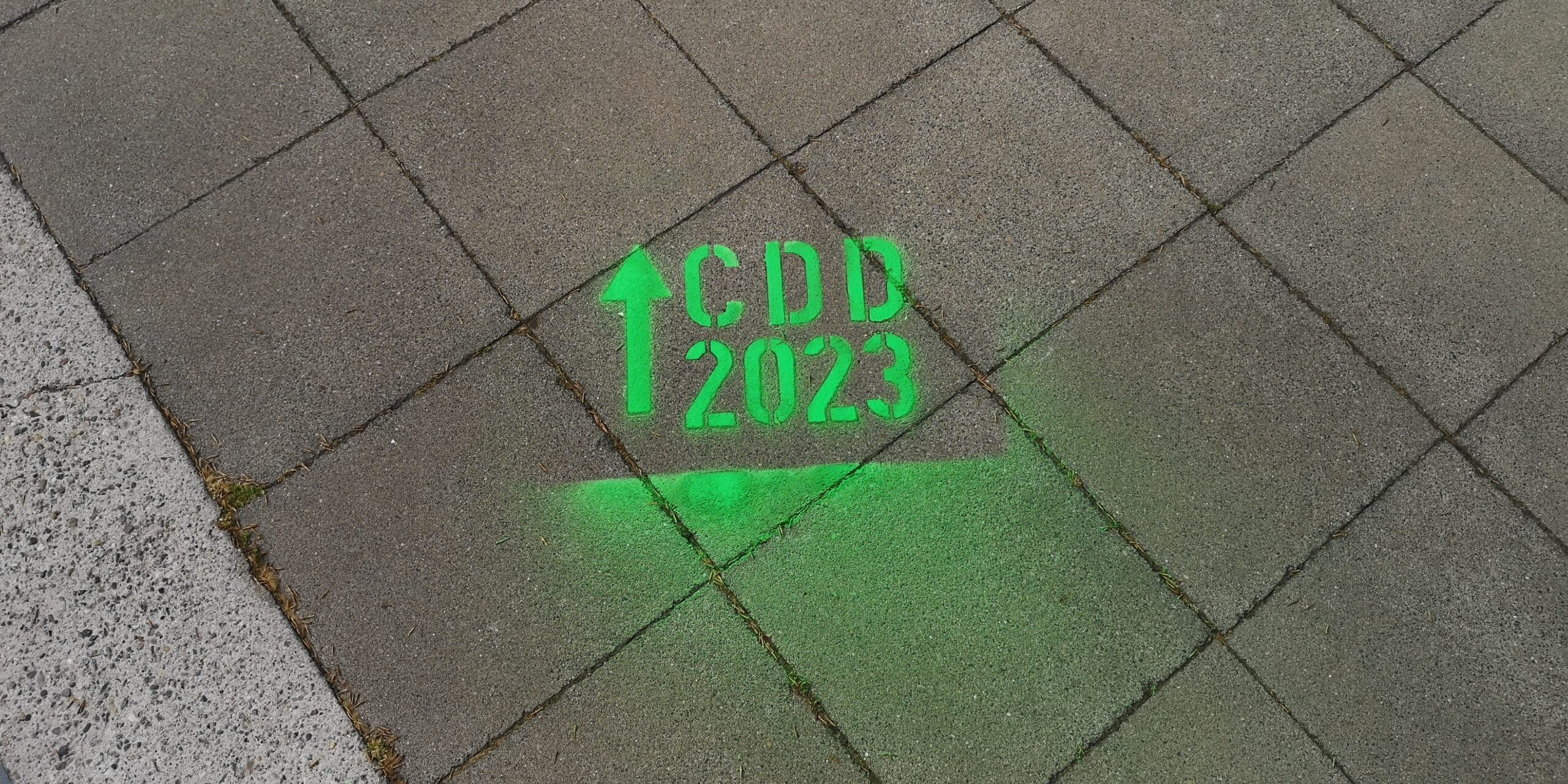On the 6th and 7th of June this year, the Chemistry Data Days took place in Mainz for the first time. Speakers examined data in chemistry from different angles. Guillermo Restrepo, for example, looked at the historical development of data spaces from a mathematical, computational and ethical point of view, Paul Czodrowski showed that no AI can work meaningfully without data (because AI still primarily means machine learning) and Kevin Jablonka demonstrated how large language models (such as ChatGPT) will change chemistry.
But the bulk of the congress was dedicated to talks and workshops concerning data handling principles such as data management and smart lab tools. After all, the conference had a hands-on mission that it had to live up to with its participants. Workshops on starting a career for young chemists and on successful publishing as well as a bar camp rounded off the programme. The evening poster session with buffet and beer tasting offered plenty of space and opportunity for networking and thus marked an unofficial highlight of the Chemistry Data Days.

Almost 90 interested participants followed the talks and workshops over two days in the historic refectory building of the University of Mainz. The presentations by several electronic lab notebook providers, who were able to answer further questions with live demonstrations at exhibition stands, were particularly well received.
The questions submitted by participants and discussed in the bar camp were also met with great interest. Here, a small group of experts had spontaneously come together to discuss deeper questions and problems around metadata, ontologies and machine readability.
The increasing pressure from national and international funders and publishers to also make the raw data available according to the FAIR data principles for funded or published projects is noticeable for all researching chemists. This also explains the interest in learning about data handling, from data management to ELN, metadata and repositories to publishing, in order to be able to use it (better) in their own research.
The format of a conference with expert lectures and hands-on workshops on data (management) has already proven its worth at the first Chemistry Data Days. The planning for the next iteration has begun.


